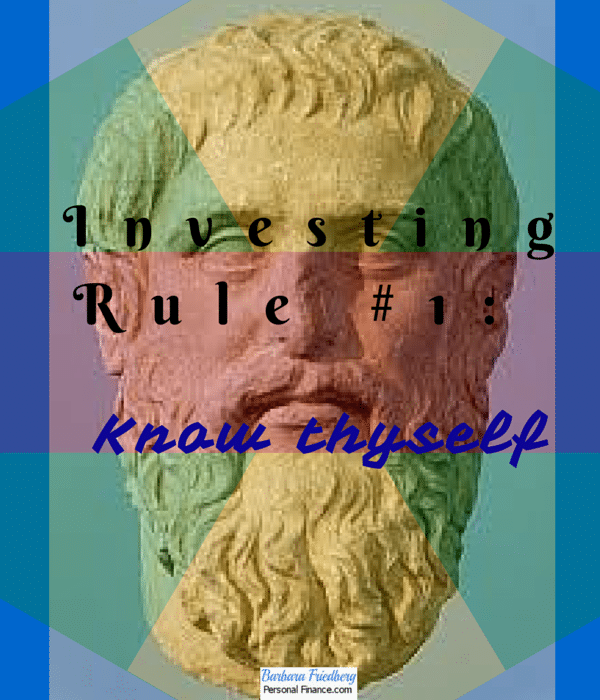First Investing Rule-Know Thyself
I was fascinated by an article by Mike at Oblivious Investor entitled, “Why I Don’t Overweight Small Cap or Value Stocks”. His argument was based on the first investing rule-know thyself. Mike is one of the most disciplined guys I know. He sticks to what is right for him. He knows himself, and lives accordingly.
Mike cogently laid out the research that over time, value and small cap stocks have outperformed a broad based index fund. This is widely accepted information from Modern Portfolio Theory and is considered one of the market anomalies of the efficient market hypothesis.
A Bit of Investing 101 Theory
The efficient market theory purports that over time the stock market is generally efficient and that prices reflect all available information and revert to their fair value. This Efficient Market theory is the basis of the indexing approach to investing and states it is very difficult to beat the overall market returns.
Yet, the anomaly rebuffs the efficient market theory and shows that small cap stocks and value stocks, over decades, tend to outperform the overall stock market. Although this is so, there are long periods of under-performance of these asset classes as well. In spite of his awareness of this research, Mike decides not to act on the over-performance of value and small cap stocks.
How the Small Cap and Value Stock Out-performance Impacts My Investing
Personally, after studying this research in my MBA program, I added an extra bent towards value and small cap ETF’s to my portfolio. I decided to add those asset classes to our asset allocation and purchased two low cost index ETF’s; one specializing in value stocks and the other in small cap stocks. I was well aware that although small and value stocks outperformed in the long term there were also long periods of under-performance. That doesn’t bother me, as I’m quite disciplined and don’t change my well thought out investing strategy easily.
What About Mike?
In his own words,
“If, however, you’re somebody who would start to doubt your choice–and potentially back out on it at the worst time–during a period of relative under-performance, you should think twice about implementing a tilted portfolio. And that’s the boat I’m in. For whatever reason, I’ve come to have a strong suspicion of anything remotely clever when it comes to investing.”
I was completely taken by his rationale.
In lieu of the possibility of a higher long term rate of return, Mike decided to create a portfolio in line with his self knowledge and investing comfort level. He understands his risk tolerance and is interested in sticking with a simple and clear cut investing strategy in line with his personality.
Very wise.
Read: What are Index Funds and Asset Classes Investing? >>>
Investing Rule-Try Being a Lazy Investor
Piper’s investing style might be characterized as “lazy”. After all, he chooses index funds and then stays the course. He doesn’t change with the wind, the fads, or the tip he gets from his neighbor. And you know what? He’s likely outperforming most active investors. In turns out that a lazy investing portfolio can outperform many more sophisticated approaches.
Click here if you want to solve your investing problems.How do you decide which investment approach to follow?
A version of this article was previously published.

